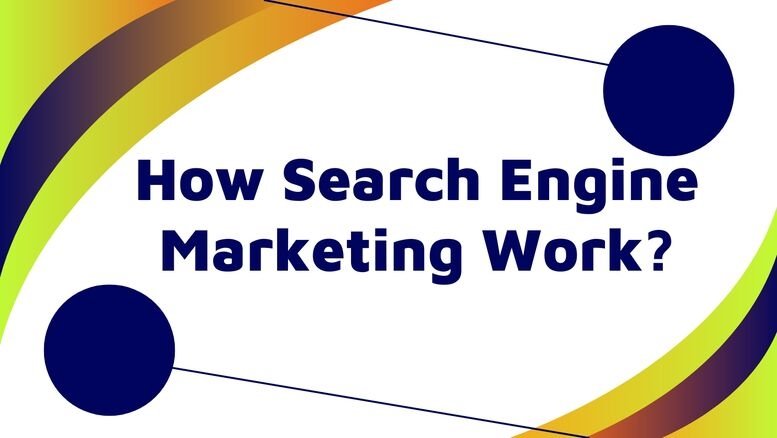Digital world, consumers rely on search engines to find everything they need. This makes search engine marketing (SEM) an incredibly important tool for businesses to reach their target customers. But with so much online competition, how do you ensure your website appears in the right searches? That’s where keyword research comes in.
You can optimize your website content and marketing strategies to attract more qualified leads by identifying the valuable keywords your target audience is searching for. This article will delve into the fascinating world of SEM, explaining how it works and how you can leverage it to achieve your business goals.
We’ll explore the importance of keyword research, analyzing search intent, and crafting content that resonates with your target audience. By the end, you’ll be well-equipped to unlock the power of SEM and drive valuable traffic to your website.

Why is SEM Important?
Search engine marketing (SEM) is a powerful tool that can help businesses achieve a variety of goals. Here are five key reasons why SEM is important:
| Reason | Description |
| Increased Visibility | SEM helps your website rank higher in search engine results pages , making it more visible to potential customers. When people search for terms related to your products or services, your website is more likely to appear at the top of the results page. This can lead to a significant increase in website traffic. |
| Targeted Reach | With SEM, you can tailor your campaigns to reach specific demographics and interests. This ensures that your message is reaching the right audience. For example, you can target your ads by location, age, gender, and interests. |
| Measurable Results | SEM provides valuable data and analytics that allow you to track the performance of your campaigns and measure your return on investment . You can see how many people are clicking on your ads, how much traffic your website is getting from your campaigns, and how many conversions you are generating. This data helps you to refine your campaigns and optimize your spending. |
| Cost-Effective | Compared to traditional marketing methods, SEM can be a more cost-effective way to reach a wider audience. With SEM, you only pay when someone clicks on your ad. This means that you can reach a large number of potential customers without spending a lot of money. |
| Improved Brand Awareness | Consistent SEM efforts can increase brand awareness and recognition among your target audience. Even if people don’t click on your ads, they will still see your brand name and message. This can help to build brand awareness and recognition over time. |
How SEM Works
SEM encompasses a variety of strategies to improve a website’s visibility in search engine results pages (SERPs). Here’s a simplified breakdown of the process:
- Keyword Research: The first step is to identify the valuable keywords that your target audience is searching for. This forms the foundation of your SEM strategy. You can use keyword research tools like Google Keyword Planner to find relevant keywords and see how many people are searching for them.
- On-Page Optimization: Once you have identified your target keywords, you need to optimize your website content and structure to be relevant to those keywords. This includes optimizing your title tags, meta descriptions, and website content.
- Pay-Per-Click (PPC) Advertising: A core component of SEM is PPC advertising. This involves creating ads that appear at the top of SERPs when users search for your chosen keywords. You only pay when someone clicks on your ad.
- Tracking and Analysis: It’s important to track the performance of your SEM campaigns so that you can see what’s working and what’s not. You can use analytics tools to track things like click-through rates , conversion rates, and return on investment .
The Difference Between SEO and SEM
SEO (Search Engine Optimization) and SEM (Search Engine Marketing) are often used interchangeably but there’s a key distinction. SEO focuses on organic search results, meaning your website ranks higher naturally based on its relevance and authority. SEM, on the other hand, encompasses both organic and paid search strategies. PPC advertising, a core component of SEM, allows you to pay for a higher ranking in search results.
| SEO | SEM |
| Focuses on organic search results | Encompasses both organic and paid search results |
| Free | Can be costly, depending on your budget and bidding strategy |
| Takes time to see results | Can see results quickly with PPC advertising |
SEM Keyword Research Strategies
Effective keyword research is crucial for a successful SEM campaign. Here are some key strategies to consider:
- Identify relevant keywords: Use keyword research tools like Google Keyword Planner to find keywords that are relevant to your business and target audience.
- Consider long-tail keywords.